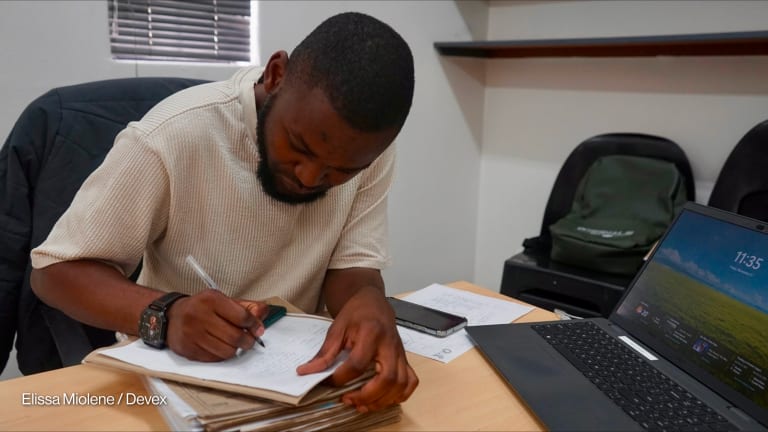Lifesaving HIV/AIDS treatments will become more affordable and accessible to millions of affected people, including one-third suffering from complication of tuberculosis, after the Clinton HIV/AIDS Initiative clinched a packaging and pricing deal with two drug companies.
U.S. drug firm Mylan and its recent acquisition, India-based Matrix Laboratories, will make four drugs used for second-line antiretroviral therapy available for 28 percent lower than its cheapest alternative today.
Second-line therapy is necessary when HIV-afflicted individuals fail to respond to standard treatment regimens.
The once-daily treatment of atazanavir, ritonavir, tenofovir and lamivudine will come in three pills, with the last two drugs combined in one pill. These are available as separate products today for about $475 annually but by 2010, these will come in a single package that will cost only $425 per year.
Members of the Clinton Foundation's Procurement Consortium across Africa, Asia, Latin America and the Caribbean will be able to procure these new products at the lower prices.
In addition, pharmaceutical giant Pfizer agreed to reduce the price and expand the availability of rifabutin, a second-line therapy used by HIV patients also ill with tuberculosis.
The World Health Organization has reported that over one-third of people living with HIV are also afflicted with tuberculosis. With more than 450,000 deaths in 2007, tuberculosis is the leading cause of death among HIV patients.
Pfizer will sell rifabutin at $1 per 150 milligram; a full course of treatment for six months will cost $90. Developing markets in Africa, Asia, Eastern Europe, Latin America, the Middle East and the Caribbean will have access to this price.
"[This] will help ensure we can sustain treatment over a lifetime and better treat patients with both HIV and TB, two key steps in turning the tide of the global HIV/AIDS pandemic," said Bill Clinton, former U.S. President, on Aug. 6.
The Clinton Foundation's initiative was supported financially by UNITAID, the U.K. Department for International Development and the Bill & Melinda Gates Foundation.
The United Nations hailed the partnership for its potential to improve the sustainability of national treatment programs.
"People living with HIV should not have to choose between TB and AIDS treatment," said Michel Sidibé, executive director of the Joint U.N. Program on HIV/AIDS.
UNAIDS estimates that 33 million people worldwide have HIV. By the end of 2008, some 5 percent of 4 million people on antiretroviral therapy required second-line treatment. Demand for these drugs are is expected to shoot up.
Meanwhile, an international gathering of leaders called for stronger commitment to universal access.
Ani Bambang Yudhoyono, Indonesia's first lady, stressed the need to focus on protecting the most at-risk populations - sex workers, men who have sex with men, transgendered people, injecting drug users and their intimate partners - at the opening of the 9th International Congress on AIDS in Asia and the Pacific on Aug. 9.
"We must transform the AIDS response in Asia so that it works for people," she said, "especially for people who have been marginalized and without a voice."








